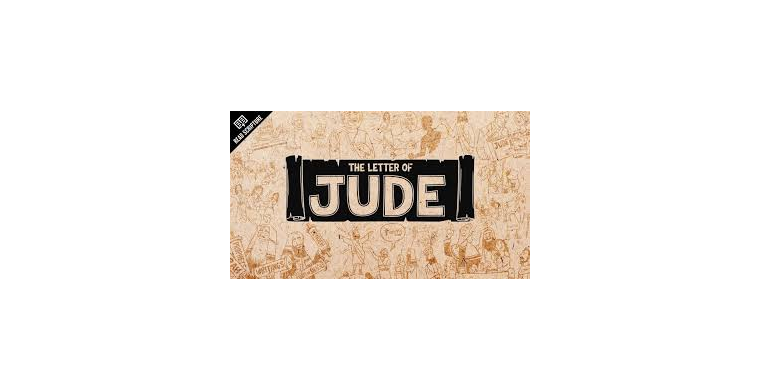THE TESTIMONY OF JUDE
By Roger Salter
www.virtueonline.org
May 20, 2024
To those who are the called, beloved in God the Father, and kept for Jesus Christ: May mercy, peace, and love be multiplied to you [Jude 1-2].
Given that the brothers of Jesus did not believe in him prior to the resurrection (John 7:5) it is gratifying to faith that two documents of the New Testament come from the hands of two of those skeptical brothers, namely James and Jude. Each man became a dedicated follower of the God-man, which attests the authenticity of the Son of God, as no fault was found in him by the closest possible observers.
Therefore, it is possible to read Jude's missive as a veritable paean to Christ's divinity and Lordship, which is liberally expressed throughout his indispensable writing at every possible juncture. The erstwhile unbelieving brother of the Lord is a leading vindicator of his divine status and assignment.
This fact makes it possible to support, as F.F. Bruce happens to do, the contention that verse 5, referring to the Lord as Israel's Deliverer might also be rendered as Jesus by name as the Savior of Israel at the exodus, as is evident in two ancient scrolls and many literary offshoots. There is no absolute certainty but it ties in with Jude's desire to extol his unique sibling. Jude and James loyally bow the knee to the Lord Jesus fully apprised of any home truths about him.
The facts and acts of Jesus constitute our most holy faith as we constantly look forward and rely upon the mercy of our Lord Jesus Christ to eternal life; the faith we are earnestly to contend for with every strain of our being. Weak faith and unbecoming behavior amount to a denial of the Lord Jesus of which Jude and James were formerly guilty. Absolute loyalty is their exhortation to every genuine believer. Jude issues graphic warnings to the cohorts who confess Christ.
The Infallible Keeper of Our Souls
Christ as Lord is the central theme of two errant brothers once blind to Messiah's glory. But now Jude centers his thoughts upon the centrality of the Lord Jesus in God's great redemptive plan. Because of Messiah's obedience he has been rewarded with an inheritance secured by his atoning death. "He will see his offspring" and "justify the many" (Isaiah 53:10,11) and therefore all who are called and beloved by God will be kept for Jesus Christ (v1).
The divine pledge that Jesus should receive a redeemed humanity as reward for his salvific obedience to the Father is an eternal compact that cannot be broken. Jesus is absolutely entrusted with the wellbeing and safety of those purchased by the blood [the elect many] at all costs, given the great cost of the purchase of the helpless lost sinners whose names are written in the Book of life.
John expatiates upon the covenant between the Father and the Son in the 6th chapter of his gospel [vv35-51]: "And this is the will of him who sent me, that of everything that he has given me I will lose nothing, but will raise it up on the last day. For this is the will of my Father, that everyone who sees the Son and believes in him will have eternal life, and I myself will raise him up on the last day" [vv39-40]. Can such a compact between Father and Son ever be broken? [cf John 10:25-30]. Jesus is not willing to lose or forsake any portion of his inheritance. RJS
If I were in a position to offer counsel to my evangelical brethren . . . I would earnestly advise them to hold fast the doctrine of final perseverance, and never let it go.-- Bishop Ryle














